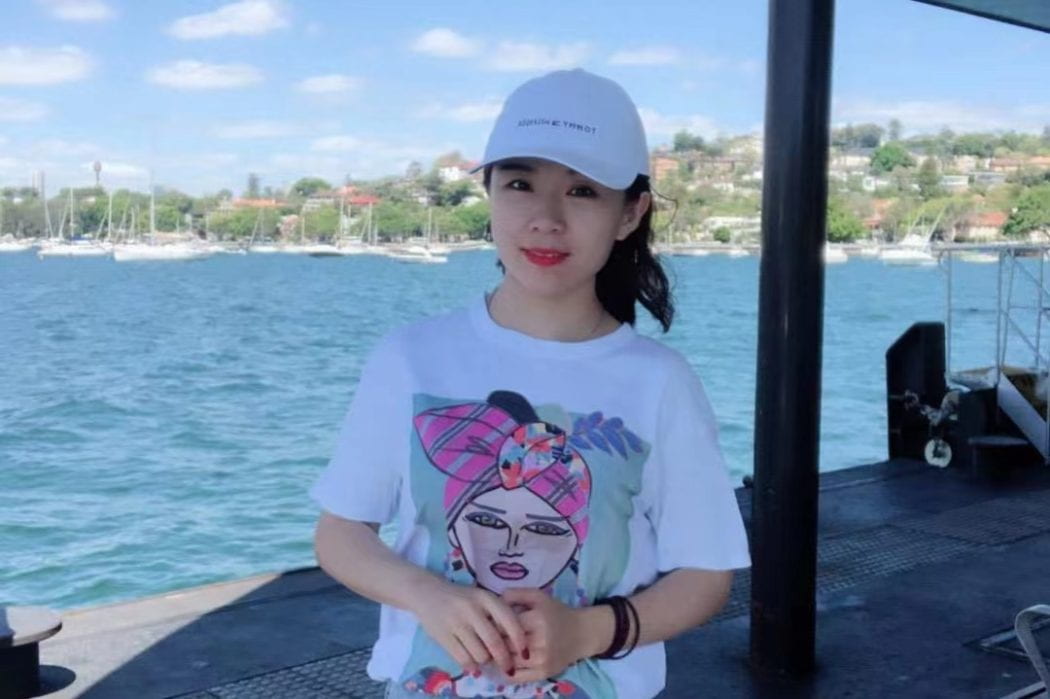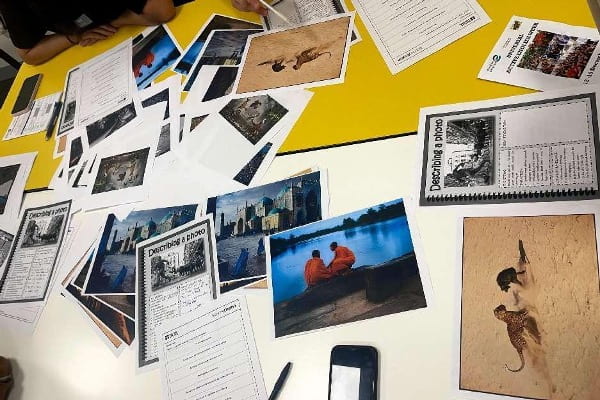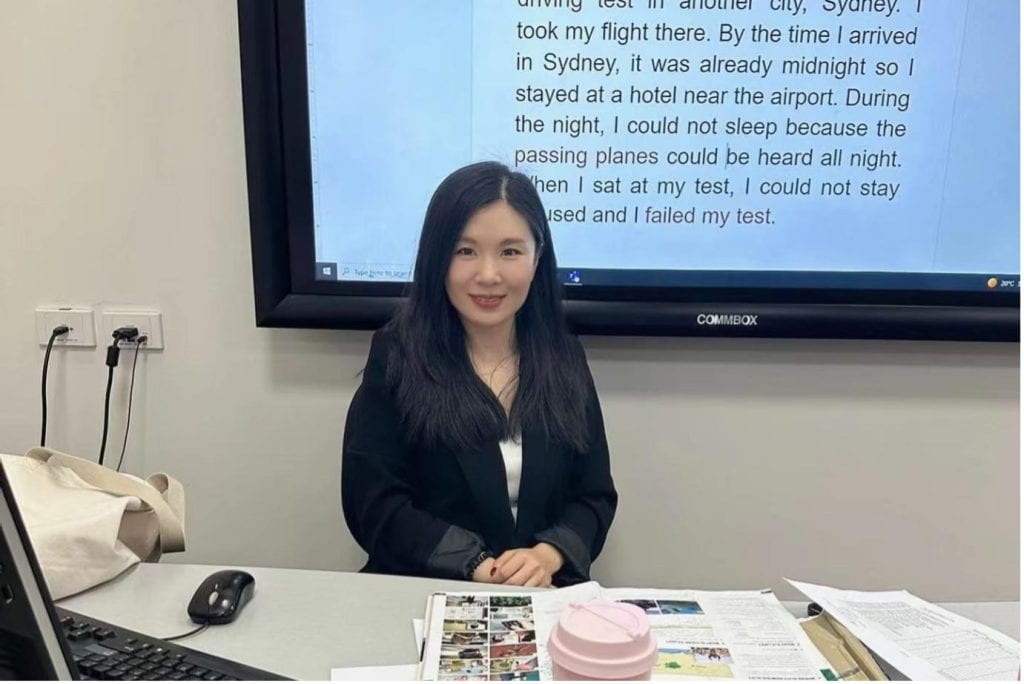
A Passion that Never Fades: Interview with Wenwen Yu, a Graduate from Master of Applied Linguistics
Hangyu Zhang
Wenwen Yu graduated from the Master of Applied Linguistics at the School of Languages and Linguistics in 2022. During her postgraduate study and after graduating from the university, she has been devoting herself to English language teaching for language learners from diverse backgrounds, such as Colombia, Thailand, Brazil, China, and Peru, to name a few.
Hangyu interviewed Wenwen to learn more about her professional journey and her achievements during her studies at the University of Melbourne.
***
Hi Wenwen, when did you graduate from the Master of Applied Linguistics at SOLL?
I graduated from the Master of Applied Linguistics at the University of Melbourne in November 2022.
Can you tell us a bit about why you chose this degree?
My teaching journey started almost a decade ago, specialising in courses like IELTS (International English Language Testing System) and Cambridge exams. I was passionate about helping students achieve their language proficiency goals, and I took immense pride in my work. However, as the years went by, I began to feel a growing sense of restlessness and the need for something more that could contribute to my professional life.
It was during a quiet moment of reflection that I found myself at a crossroads. I realised that I had been on a single career path for a long time and wondered if there was more I could do to enhance my skills as an educator. This moment of introspection was like a light bulb going off in my mind. I recognised that I had accumulated a wealth of experience in teaching, but there was still a vast sea of knowledge and expertise waiting to be explored.
This realisation marked a turning point in my career. It was a moment of awakening; as a teacher, I needed to step outside my comfort zone and challenge myself with new ideas and insights. That’s when I decided to explore the possibility of pursuing higher education, a master’s degree in Applied Linguistics.
How did you like your student life at the University of Melbourne?
My time as a student at the University of Melbourne was genuinely remarkable. It was a period of profound learning, personal growth, and boundless inspiration. It was like stepping into a vibrant marketplace of knowledge where I could pick and choose the best strategies to nurture my students’ language skills.
The courses I embarked upon, ranging from second language acquisition to language testing didn’t just scratch the surface; they delved deep into the theoretical realms of language and pedagogy. They equipped me with theoretical wisdom that’s like having a secret sauce to enhance my teaching game.
My life at the university was like getting a backstage pass to the language learning concert – a VIP ticket to the inner workings of our brains as we pick up new languages. I learned why some students breeze through language learning while others need a bit more time. It’s like discovering the magic behind the scenes of a great show. I also found out how meaning goes beyond words and why some things are polite in one place but not in another. It’s like finally figuring out why your well-intentioned joke might not land the same way with your international friends. Also, I learned how to transform tests from intimidating challenges into valuable tools for my students.
My student life also extended beyond the academic realm. It was a vibrant and diverse community, mirroring the multicultural nature of Melbourne itself. This diversity allowed me to interact with students from various cultural and linguistic backgrounds.
So, my student life was more than just a chapter in my academic journey; it was an intellectual adventure that continues to shape my teaching philosophy and the lives of my students.
Does this degree actually help your career life?
Yes. This degree has had a significant and positive impact on my career as a language educator. The knowledge and skills I gained have not only enriched my teaching methods but have also opened up new opportunities for professional growth.
Before my graduation, I had the privilege of working at ILSC Language Group (https://www.ilsc.com/) in Melbourne, and I credit this opportunity to the valuable knowledge and skills I gained during my education at the University of Melbourne. Through the rigorous coursework and practical training provided by this programme, I was well-prepared to contribute effectively in my role at ILSC.
During my time at ILSC Language Group in Melbourne, I had the opportunity to teach various courses, including English Essentials and Foundations, IELTS, and Academic Writing, via face-to-face and online sessions. My classroom was a dynamic space filled with students from diverse backgrounds, each with their unique linguistic challenges.
However, my role as an educator extended beyond merely teaching them how to use English. Thanks to what I had learned at the University of Melbourne, I was equipped not only to instruct but also to engage them in critical thinking. I could embed word and grammar study into specific contexts, making learning not just informative but also immersive. Through thought-provoking discussions and challenging exercises, I encouraged my students to think critically to dissect language in meaningful ways. This approach allowed them to not only understand the ‘what’ of language but also the ‘why’ and ‘how.’ It was more than a language lesson; it was an exploration of the intricate web of communication.

A Culturally Enriching Activity Designed by Wenwen. Photo by Wenwen
Furthermore, my university education instilled in me the importance of creating an inclusive learning environment. I understood that language learning could be daunting, and the fear of making mistakes often held students back. In one of my classes, there was a student who was particularly reserved when it came to speaking in English. I could sense her desire to improve but also her fear of being judged. Drawing from my university education, I decided to implement a simple yet effective practice. I introduced ‘Language Buddies’ in the classroom. Each week, I randomly paired students, ensuring that more proficient speakers were paired with those who needed more support. Now, here’s where the inclusivity came into play. I encouraged the ‘Language Buddies’ to engage in casual conversations outside of the classroom setting. This allowed students to build confidence in a less intimidating environment. It wasn’t just about correcting language errors; it was about creating connections and a sense of community. Over time, this student became more comfortable expressing herself in English. Her ‘Language Buddy’ provided gentle guidance and support. In my classes, I also attempted to create a supportive learning environment where their stories and cultural backgrounds played a central role in teaching grammar and language. In this way, I could not only make the lesson engaging but also allow them to connect grammar to their own lives, making learning more meaningful.

Wenwen in Her Classroom. Photo by One Student from Turkey
Wonderful experiences! So, what’s your future plan?
In future, I am committed to continuing my contribution to the field of language teaching. I aspire to further enhance my expertise and knowledge in this area. One of my long-term goals is to pursue a PhD programme, which would allow me to delve deeper into research and make meaningful contributions to language education. I am excited about the prospect of exploring new horizons in language teaching and learning and remaining dedicated to this rewarding profession.
What recommendations would you like to offer to current students and new graduates?
When I was at the University of Melbourne, I figured out some good ways to do well in my classes. One thing that really helped was making a schedule. I would set aside specific time to study for each subject, and this kept me organised. I also found study groups to be a big help. Teaming up with classmates who were in the same boat made studying more fun and productive. We shared notes and talked about tough topics, and that made us all understand the material better. So, if you’re a student now, try making a study schedule and consider studying with friends; it can make a big difference in how you do in your classes.
Building relationships was something I appreciated during my university days. It could be as simple as striking up conversations with professors, classmates, or professionals you meet in your daily life. These connections can still provide insights into potential career paths and the real-world application of what you’re studying. So, if you’re a current student, remember that fostering relationships doesn’t always require formal events; it can happen naturally in your day-to-day interactions and offer valuable guidance for your future career.
These are very useful tips! Thanks, Wenwen! Good luck with your future research and career!
Thank you, Hangyu!
***